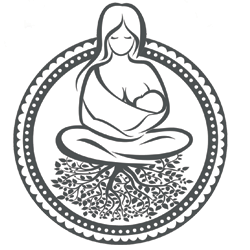We have a cultural language that is used during pregnancy and birth. This language has become so ingrained in our day-to-day that most of us are unaware of not only how often we speak it, but of how incredibly powerful our words can be in sending messages to pregnant and birthing women.
“Will I be ALLOWED …….”
“CAN I …….”
“My Care Provider won’t LET me …….”
“You aren’t ALLOWED……”
“We don’t LET you…….”
Permissive Language is pervasive within birthing culture. It stems from deep-rooted cultural beliefs about birth itself, care providers practicing defensively in response to a litigious society and at its fundamental core, the view that women are not competent and capable of making decisions for both themselves and their babies.
It’s a verbal manifestation of the belief that someone else is more invested in your birth, that someone else is more responsible for your birth and that someone else has the final say in what happens to you and your baby.
The wording we use when discussing a woman’s pregnancy and birth essentially lays out what the expectations are for her during the course of her pregnancy, birth and mothering. These words can either strip away or build up her own authority as the primary decision maker and have the potential to undermine her confidence in being able to birth normally and to meet the demands of parenthood.
When we confine women into a role of needing others “permission” we are telling her that she’s NOT to trust her body or follow her instincts – that her personal belief system, her own ways of knowing are inconsequential, irrelevant and possibly dangerous. Using permissive language at any point during her pregnancy, labour, birth or in the postpartum period is in short, disempowering that Mother.
We know that the way a birthing mother is treated has a lifelong effect on her own mothering, her confidence and feeling of self-worth. We have the opportunity to either increase or decrease her chances of developing postpartum depression (PPD) and post-traumatic stress disorder (PTSD), all before she has even entered the postpartum phase of the childbearing year. The majority of women who have had negative or traumatic birth experiences report that a key factor in what made the birth traumatic was the way they were treated and were made to feel (by the physician, nurse, midwife etc.) during the process – not necessarily that the birth was complicated.
Mothers who are treated with respect, who are included in decision-making and regarded as the primary decision maker while being supported in their emotional and physical needs have more positive birth experiences (no matter the path their birth takes).
In contrast, Mothers who are bullied, who are relegated into having a “child-like” status during their births (permissive language, being confined or having procedures done to them or their baby without or against expressed consent), are far more likely to come out of their births with trauma, PPD and PTSD.
Many people are not aware that the way we treat women during birth extends beyond emotional and psychological aspects. Our words and behavior towards a labouring mother also have an impact on birthing outcomes from physiological and safety standpoints.
An emotionally distressed mother has much higher levels of adrenaline and catecholamines coursing through her system which inhibit blood and oxygen flow to both Mother and baby and may increase the need for intervention. In these situations, oxytocin (which is part of a complex cocktail of hormones) is not being released in optimal levels, beta-endorphins are minimal and the Mother experiences higher levels of pain. Labour may proceed slowly or may stop entirely if the mother is aggravated or does not feel safe (which is a normal response during all mammalian births) and the likelihood of her labour being classified as abnormal or dysfunctional, “necessitating” intervention is very high. I’ve personally witnessed how unkind words and aggressive actions around the Mother can impede labour progress (including reversing the opening of the cervix – a phenomenon best explained by Ina May Gaskin’s “Sphincter Law”).
By continuing to use this type of language (whether we are Mothers, friends, partners, family members, Care Providers, Doulas, Men or Women) we reinforce the already prevalent imbalance of power in what should be a supportive and healthy partnership with our Care Providers. We are doing a lot of harm (unintentionally for the most part) without understanding the impact such simple phrases may have. In a recent Facebook post, I asked the following:
“The next time you hear the word “allow” or “let” in a sentence, replace it with the word “support”.
1. My Care Provider won’t ALLOW me to labour without an epidural.
2. My Care Provider won’t SUPPORT me to labour without an epidural.
See how that changes your perception of the conversation.”
For those of you wanting an in-depth understanding of our modern birth culture and the myriad of issues we are facing as birthing women in today’s society, the book “Birth Matters” by Ina May Gaskin and the documentary “Face Of Birth” are excellent resources. For information on postpartum issues and cultural experiences of Motherhood, the book “Ourselves as Mothers” By Sheila Kitzinger is also highly recommended.

